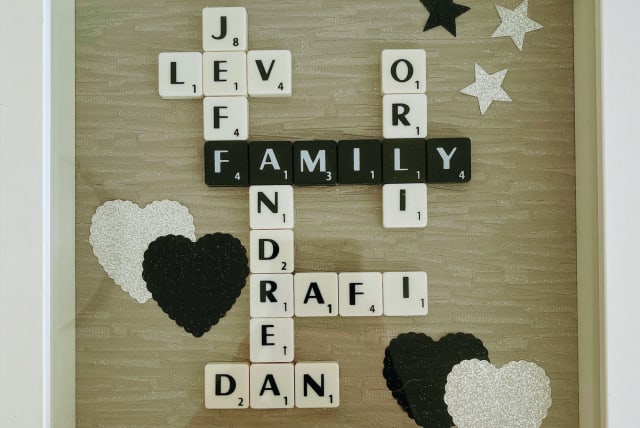What's in a name? How to choose a name for your baby - comment

Whatever you think of your name, it’s the first thing you’re given when you come into this world which stays with you until the very end.
We’ve all been there: Your child befriends a boy or girl with a very silly name. When you have the pleasure of meeting little Wednesday, Smith, or Apple, the first thing that crosses your mind is, “What were they thinking?”
In most cases, a person’s name is bestowed upon them at birth, following hours of careful thought and consideration on the part of the parents, and in some cases, the whole family.
Choosing a name for your newborn can be a daunting task. The lucky ones, who simply name their bundle of joy after a dearly departed relative, have it easy. The rest of us spend months giving anxious consideration to this all-important decision.
A head start is doubtless afforded to those who find out the sex of their child before the birth, which is around half of all parents-to-be. The other half has to work twice as hard when deciding on a suitable moniker.
Trying to choose a Hebrew name for your baby outside of Israel
Then there’s the added complication which goes hand in hand with being part of the Tribe but living away from the Jewish homeland. For many Jews outside of Israel - particularly those who strongly identify with their religion and with Israel while leading largely secular lives, a fine balance is hard to achieve. For them, certain considerations must be addressed when choosing a name.
Pronunciation is one concern for those who are fond of Hebrew names.
Growing up in Britain, the name Chaya, could easily be mistaken for the northern greeting, “Hiya!” For this reason, I decided against calling my own daughter this beautiful name, meaning “life” in Hebrew, when she was born in Manchester 18 years ago.
Instead, we called her Orli, meaning “my light,” an altogether more fitting name as we discovered when she was born, owing to her beautiful titian locks. This name didn’t present her with any problems in our hometown, where a good number of girls in her school, King David, shared it.
Ironically, the problems started when we made aliyah and the kids at school here called her “Olly,” as she couldn’t pronounce the guttural “r.” Only now, over seven years later, is she confident enough to pronounce her name properly.
And then there’s my firstborn Rafael, or Rafi for short. His name means “God has healed,” chosen, in part, to honor the memory of my Grandpa Ralph. It also signifies the healing process after the miscarriage which I suffered before falling pregnant with him. We also loved the name, as did many others in our community back in Manchester who also called their sons Rafi.
When we came to live in Israel, however, we soon realized that Rafi was looked upon as an old man’s name. None of the kids’ friends shared it. Conversely, some young boys and men here have names that most Brits these days wouldn’t dream of giving their children, such as Roy and Ron.
Although some of our family and friends raised their eyebrows at our “unusual” choice of names, (our youngest son is called Lev, meaning “heart” in Hebrew) we weren’t deterred.
However – and while I realize that there’s something deeply psychological about this, probably stemming from our long history of persecution – we did give our kids middle names with more universal, transportable appeal should they feel the need to avoid using their obviously Hebrew names: David, Jonathan, Phylis, and Jenny – all of which also happened to be the names of grandparents who had passed.
At the time, as we had no plans to live in Israel, it seemed a reasonable precaution, given the problems which can arise, simply from a name. Submitting a job or university application, for example, in Britain or anywhere else outside of Israel for that matter, can be a problem if you have a very Jewish name. A sad reflection of the reality of the situation for Jews living in the Diaspora, but one which exists nevertheless.
To avoid making her daughter, who was born in London, the target of discrimination, British-Israeli Sue Austen decided against naming her Leah. Instead, she called her Zoe: “I wanted to call her Leah, but her dad said it sounded too Jewish. Antisemitism was around in the UK 22 years ago,” she lamented. Sadly, it still is.
It is for this reason that many shy away from Hebrew names altogether, although this is slowly changing, preferring instead to choose less unusual names that are popular in their child’s country of birth. If they happen to be names from the Torah, then so much the better.
Where separate, additional Hebrew/Yiddish names are also given, they aren’t recorded in any official documents but simply passed down the generations orally. For all intents and purposes, these names are hidden from the wider public, only to surface when the child reaches a milestone such as a bar or bat mitzvah. Other than that, one could be forgiven for thinking that they’re given merely to provide a source of entertainment and embarrassment, as people often bemoan the hideousness of theirs: “My ‘Hebrew [Yiddish]’ names Chula Brandeleh make me want to jump off a cliff,” half-joked Karen Tsafrir, an Israeli party planner who was born in London and has lived in Israel for most of her life.
I was lucky on that score: I got Hannah as my Hebrew name, which I much prefer to Andrea, not that I plan to do anything about it. I’ll always be Andrea. Others, however, hate their name with a passion so great, they even go to the trouble of changing it legally.
Whatever you think of your name, it’s the first thing you’re given when you come into this world which stays with you until the very end. You and your name become synonymous: even if you do change it to something else, in most cases, you’ll always be known by it.
The writer is a former lawyer from Manchester, England. She now lives in Israel where she works at The Jerusalem Post.
Jerusalem Post Store
`; document.getElementById("linkPremium").innerHTML = cont; var divWithLink = document.getElementById("premium-link"); if (divWithLink !== null && divWithLink !== 'undefined') { divWithLink.style.border = "solid 1px #cb0f3e"; divWithLink.style.textAlign = "center"; divWithLink.style.marginBottom = "15px"; divWithLink.style.marginTop = "15px"; divWithLink.style.width = "100%"; divWithLink.style.backgroundColor = "#122952"; divWithLink.style.color = "#ffffff"; divWithLink.style.lineHeight = "1.5"; } } (function (v, i) { });

